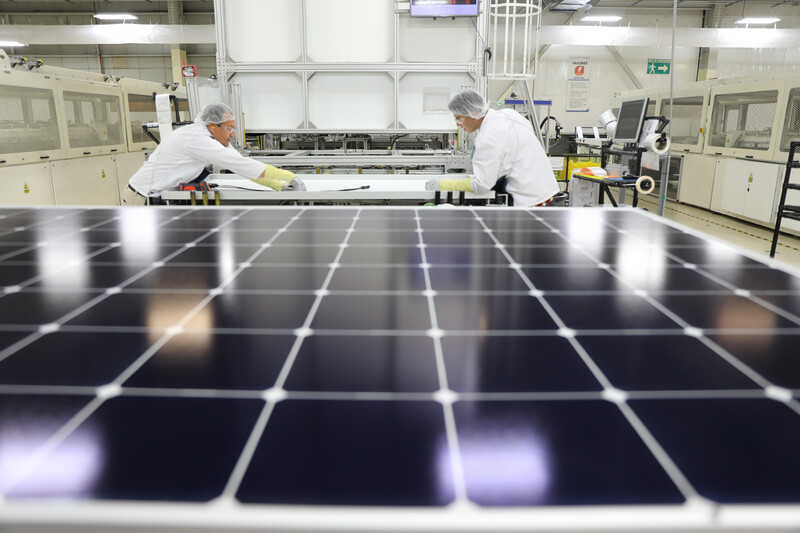Clean energy starts with intelligent design

The transition toward clean energy sources is pivotal in mitigating impacts of climate change, and major components of that transition include solar panels. Therefore, the demand for solar energy to power homes, businesses, and public spaces is growing.
In Europe, 2021 was the best year ever for solar energy; in the US, solar accounted for 46% of all new electricity-generating capacity. According to the Solar Energy Industries Association, solar energy will comprise 30% of all US electricity generation by 20301
Solar Energy Industries Association, The Solar+ Decade https://www.seia.org/solar-decade (accessed July 2022)
. Meanwhile, the European Commission is considering setting an ambitious target of at least 1,000 gigawatts of photovoltaic installed in the region by 20302
Source: European Commission: https://energy.ec.europa.eu/topics/renewable-energy/renewable-energy-directive-targets-and-rules/renewable-energy-targets_en (accessed July 2022)
. With more production to meet demand, just how ‘green’ is a panel manufacturing-process in the first place? And what about recycling photovoltaic when it comes to the end of their life?
Positive net impact of clean produced solar panels
Solar panels have few components, such as photovoltaic cells, glass, and aluminium. To manufacture them, raw materials have to be mined. Following mining of raw materials, manufacturing processes to fabricate the various parts require an output of energy. Good news is that total emissions are heavily front-loaded and offset by the emission-free clean energy solar panels produce once installed. And when it comes to a solar panel’s end of life, it has to be taken in consideration during the design phase.
Reducing impact through green design
Design lies at the heart of circular economy. As much as 80% of a product’s environmental impact is determined right at the beginning: the design stage. And once something is designed, it is hard to undo. Circular economy is a concept that closely aligns with Maxeon’s commitment to the UN’s Sustainable Development Goal 12, Responsible Consumption and Production. This relates to the efficient use and management of natural resources, whilst ensuring waste is reduced and repurposed to result in a closed-loop system.
Transparency meets sustainability
Maxeon has maintained its Cradle-to-Cradle Certification®3 Cradle to Cradle Certified is a certification mark licensed by the Cradle to Cradle Products Innovation Institute. For this certification, panels go through a rigorous evaluation of sustainable practices in the areas of material health, material reutilization, renewable energy and carbon management, water stewardship, and social fairness. Visit the Cradle to Cradle website for more information on the evaluation categories. , which reflects our commitment to Zero Waste-to-Landfill and ongoing fulfilment of the responsibilities of our Declare Label, the only solar panel to do so. This distinction, issued by the International Living Future Institute, provides greater transparency by listing the materials used for production. Like a food label that lists ingredients, the Declare Label certifies that our panels are free from harmful substances and do not require hazardous waste handling procedures. This supports recycling and prevents used panels from going to landfills. Maxeon works at a local level with recycling experts in the countries we operate.
Responding to the climate crisis
As more countries, governments, and corporations pledge to achieve clean energy through net-zero emissions, solar will play a pivotal role in enabling this transition. Maxeon is an essential player in reaching net-zero by supporting the burgeoning demand for renewable energy by developing more efficient, sustainable, and longer-lasting panels. We constantly strive to manufacture the highest efficiency and the most sustainably made solar panels worldwide; we deliver panels as clean as the energy they produce.
